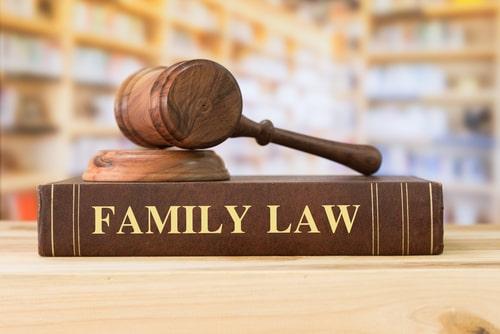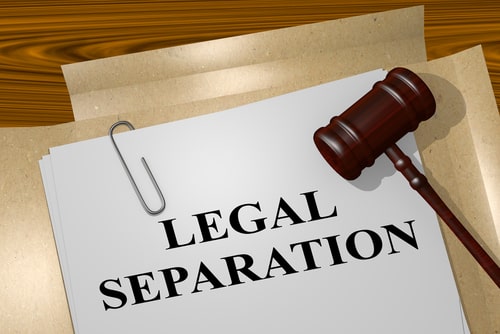 1580 N. Northwest Highway, Suite 12, Park Ridge, IL 60068
1580 N. Northwest Highway, Suite 12, Park Ridge, IL 60068
Recent Blog Posts
When Is a Postnup a Good Idea?
 A prenuptial agreement is a document signed by two people about to enter into a marriage that explains what will happen to their assets if they end up getting a divorce at some point in the future. It takes a lot of doubt out of the equation and can give both people the peace of mind that comes with knowing there are guidelines to follow if something they hope does not happen ends up happening. Some people think of it as a safety net for “just in case.” However, a lot of engaged couples would prefer not to think about the possibility that they may end up divorced, and so they decide not to sign a prenup. If later in the marriage they come to regret that decision, they have the option of signing a postnuptial agreement. Speak with a qualified Cook County, IL postnuptial agreement lawyer to find out more about what is involved.
A prenuptial agreement is a document signed by two people about to enter into a marriage that explains what will happen to their assets if they end up getting a divorce at some point in the future. It takes a lot of doubt out of the equation and can give both people the peace of mind that comes with knowing there are guidelines to follow if something they hope does not happen ends up happening. Some people think of it as a safety net for “just in case.” However, a lot of engaged couples would prefer not to think about the possibility that they may end up divorced, and so they decide not to sign a prenup. If later in the marriage they come to regret that decision, they have the option of signing a postnuptial agreement. Speak with a qualified Cook County, IL postnuptial agreement lawyer to find out more about what is involved.
Content of a Postnup
A postnuptial agreement is very similar to a prenuptial agreement, the major difference being that it is signed by two married spouses rather than by an engaged couple. It details each person’s financial responsibilities as well as which things would be considered marital assets - subject to a division of assets in a hypothetical divorce - and which would not. Aspects of a postnuptial agreement include:
Reasons to Establish Paternity in Illinois
 When a woman gives birth in the state of Illinois, she is legally recognized as the baby’s mother, and if she has a husband, he is automatically considered the father. If she is not married, however, no one is automatically recognized as the father. Even if a man has been present, involved, and supportive throughout the pregnancy and cannot wait to meet his child, he will have no legal rights as a parent unless he establishes his paternity. On the other hand, once he does establish paternity, he can have legal rights as a parent and the child can benefit as well. If you are not married but about to become a father, speak with a knowledgeable Cook County, IL paternity lawyer to find out how you can become legally recognized as the parent.
When a woman gives birth in the state of Illinois, she is legally recognized as the baby’s mother, and if she has a husband, he is automatically considered the father. If she is not married, however, no one is automatically recognized as the father. Even if a man has been present, involved, and supportive throughout the pregnancy and cannot wait to meet his child, he will have no legal rights as a parent unless he establishes his paternity. On the other hand, once he does establish paternity, he can have legal rights as a parent and the child can benefit as well. If you are not married but about to become a father, speak with a knowledgeable Cook County, IL paternity lawyer to find out how you can become legally recognized as the parent.
What Difference Does Paternity Make if I Will Be an Involved Father Anyway?
Unmarried parents do not have the same type of regulation and legally binding arrangements as parents who once were married but are now divorced. There is no parenting plan or custody agreement if the father is not legally recognized as such. This can have a significant impact on all three of the people involved in this relationship.
How Are Adults With Disabilities Cared for in Illinois?
 An 18th birthday is often marked with a celebration of new-found freedoms. Once someone turns 18 years old, they are no longer considered a minor in the United States. They are legally authorized to live on their own and make adult decisions for themselves. However, an 18th birthday can present challenges for people with disabilities. On the one hand, they are no longer minors. On the other hand, they might not be able to efficiently manage their own money and assets or live on their own even if they want to. If their parents have certain ideas for how their children should live and their adult children disagree with them, it can complicate matters further. In some cases, an adult guardian can be granted to protect their interests. If obtaining an adult guardianship is something that might happen in your family, a Cook County, IL family law attorney can help you navigate this process.
An 18th birthday is often marked with a celebration of new-found freedoms. Once someone turns 18 years old, they are no longer considered a minor in the United States. They are legally authorized to live on their own and make adult decisions for themselves. However, an 18th birthday can present challenges for people with disabilities. On the one hand, they are no longer minors. On the other hand, they might not be able to efficiently manage their own money and assets or live on their own even if they want to. If their parents have certain ideas for how their children should live and their adult children disagree with them, it can complicate matters further. In some cases, an adult guardian can be granted to protect their interests. If obtaining an adult guardianship is something that might happen in your family, a Cook County, IL family law attorney can help you navigate this process.
3 Ways to Prove You Were Forced to Sign a Prenup in Illinois
 People are relatively familiar with the concept of a prenuptial agreement. Even if they are not sure of everything that needs to be included, they have a general understanding that this is a document signed by two people before they get married which aims to outline what would happen with their finances if they get a divorce. Of course, this general description does not cover all the aspects that need to be agreed on and people might find that they signed a document they did not fully understand. If you signed a prenuptial agreement and you realize now that it went against your interests but you were pressured into signing it, a Cook County, IL prenuptial agreement attorney can review it and offer invaluable guidance on how you should proceed.
People are relatively familiar with the concept of a prenuptial agreement. Even if they are not sure of everything that needs to be included, they have a general understanding that this is a document signed by two people before they get married which aims to outline what would happen with their finances if they get a divorce. Of course, this general description does not cover all the aspects that need to be agreed on and people might find that they signed a document they did not fully understand. If you signed a prenuptial agreement and you realize now that it went against your interests but you were pressured into signing it, a Cook County, IL prenuptial agreement attorney can review it and offer invaluable guidance on how you should proceed.
How Can I Prove I Signed a Prenup Against My Will?
While it might be difficult to prove that you did not sign your prenup voluntarily, certain circumstances can help the court accept your claim. These include:
What Should I Do if My Spouse Wants a Divorce?
 It can be emotionally difficult to find out that your spouse wants a divorce. While you are likely upset and stressed about the future, it is important that you do whatever you can to protect your rights and your best interests. A knowledgeable Cook County, IL divorce lawyer can offer you insight and begin guiding you through the process.
It can be emotionally difficult to find out that your spouse wants a divorce. While you are likely upset and stressed about the future, it is important that you do whatever you can to protect your rights and your best interests. A knowledgeable Cook County, IL divorce lawyer can offer you insight and begin guiding you through the process.
How Should I Proceed When My Spouse Threatens Divorce?
The following is a list of things you should consider doing when your spouse threatens a divorce:
- Consider therapy or counseling: When a spouse threatens divorce, it can take an emotional and mental toll. A mental health professional can offer a safe space for you to explore your feelings and sort out what would truly serve your best interests. This can help you preserve your mental health, communicate more productively with your spouse, and effectively express your wants and needs as you proceed legally.
Does Job Loss Affect Child Support Payments?
 It can be confusing going through the process of a divorce. Both spouses need to figure out so many things that will affect them once their lives are no longer lived together. If they have children, they also need to arrange how they will continue raising those children now that they are apart. Some of the aspects that need to be decided refer more to the logistics, including where the children will live and when they will spend time with each parent. Other aspects deal more with finances and covering childcare costs. However, these decisions are generally based on the spouses’ circumstances at the time the divorce is settled. If those circumstances change at some point and either parent is no longer able to meet their obligations, there are court-approved ways to modify the settlement. If you now find yourself out of a job and are concerned you may not be able to afford your child support payments, a knowledgeable Chicago, IL divorce lawyer can review your case and advise you on how to move forward during this stressful time.
It can be confusing going through the process of a divorce. Both spouses need to figure out so many things that will affect them once their lives are no longer lived together. If they have children, they also need to arrange how they will continue raising those children now that they are apart. Some of the aspects that need to be decided refer more to the logistics, including where the children will live and when they will spend time with each parent. Other aspects deal more with finances and covering childcare costs. However, these decisions are generally based on the spouses’ circumstances at the time the divorce is settled. If those circumstances change at some point and either parent is no longer able to meet their obligations, there are court-approved ways to modify the settlement. If you now find yourself out of a job and are concerned you may not be able to afford your child support payments, a knowledgeable Chicago, IL divorce lawyer can review your case and advise you on how to move forward during this stressful time.
Stay-at-Home Parents and Divorce in Illinois
 Being a working parent can be challenging. You might feel pulled in two directions between your work life and your home life. If your spouse is also working full-time, it can be extremely complicated to figure out how to juggle all of your commitments. Many parents decide that one of them should stop working and handle the bulk of the household responsibilities, allowing the other to dedicate more time to working and earning a living that the family can benefit from. While this sort of arrangement works for many people, it can make matters complicated if the couple later decides to get a divorce. If you are a stay-at-home parent worried that you will suffer financially if you divorce your breadwinning spouse, an experienced Cook County, IL divorce attorney can walk you through your options and advise you on moving forward.
Being a working parent can be challenging. You might feel pulled in two directions between your work life and your home life. If your spouse is also working full-time, it can be extremely complicated to figure out how to juggle all of your commitments. Many parents decide that one of them should stop working and handle the bulk of the household responsibilities, allowing the other to dedicate more time to working and earning a living that the family can benefit from. While this sort of arrangement works for many people, it can make matters complicated if the couple later decides to get a divorce. If you are a stay-at-home parent worried that you will suffer financially if you divorce your breadwinning spouse, an experienced Cook County, IL divorce attorney can walk you through your options and advise you on moving forward.
Dynamics of a Stay-At-Home Parent
So many things need to happen for children to be raised appropriately. They need to have a maintained home, clean clothing to wear, and food to eat. They have to get to school and back, go to doctor appointments, finish their homework and papers, and make it on time for their extracurricular activities. Someone needs to make sure that they have school supplies, team uniforms, and presents to bring when they are invited to birthday parties. None of the above scratches the surface of the various things a parent is responsible for
How Does Uncontested Divorce Work in Illinois?
 People getting divorced often cannot get along with each other. As a result, reaching a settlement that includes details about how they will divide their assets and share parental responsibilities and parenting time is often a difficult process. If the two spouses cannot communicate productively, how can they be expected to figure out together how they will continue parenting their children once they split up? However, some couples want to end their marriage even though they are still able to respect each other and appreciate the other’s parenting. In these cases, there is no reason why a divorce has to be a long, drawn-out, acrimonious process. If you and your spouse find that you can agree on things, an uncontested divorce might be an excellent option for you. Speak with a Chicago, IL divorce attorney to get more information and determine how to proceed.
People getting divorced often cannot get along with each other. As a result, reaching a settlement that includes details about how they will divide their assets and share parental responsibilities and parenting time is often a difficult process. If the two spouses cannot communicate productively, how can they be expected to figure out together how they will continue parenting their children once they split up? However, some couples want to end their marriage even though they are still able to respect each other and appreciate the other’s parenting. In these cases, there is no reason why a divorce has to be a long, drawn-out, acrimonious process. If you and your spouse find that you can agree on things, an uncontested divorce might be an excellent option for you. Speak with a Chicago, IL divorce attorney to get more information and determine how to proceed.
Why a Premarital Agreement is a Good Idea in Illinois
 Understanding what makes a premarital agreement such a significant investment is essential for any couple looking to tie the knot. Regardless of whether or not you plan to have a premarital agreement, it is still important to know how they can benefit you and how to go about creating one. How you present a premarital agreement to your partner is up to you. However, an attorney with experience in premarital agreements can help you draft one.
Understanding what makes a premarital agreement such a significant investment is essential for any couple looking to tie the knot. Regardless of whether or not you plan to have a premarital agreement, it is still important to know how they can benefit you and how to go about creating one. How you present a premarital agreement to your partner is up to you. However, an attorney with experience in premarital agreements can help you draft one.
What is a Premarital Agreement?
The premarital agreement is what is most commonly referred to as a prenup. It is a legal agreement signed by both parties before getting married. A prenup will most often cover various issues in the case of a divorce, including:
Legal Separation vs. Divorce: What Is the Difference?
 The primary difference between a legal separation and a divorce is that a divorce will allow you to remarry should you choose to do so. Without a divorce to terminate the marriage, the ability to remarry is off the table for both parties. A legal separation also has no time limit, whereas once a divorce goes through, it is final. If you are facing the decision between a legal separation or divorce, an experienced Illinois attorney can help figure out your best option and represent you at trial if necessary.
The primary difference between a legal separation and a divorce is that a divorce will allow you to remarry should you choose to do so. Without a divorce to terminate the marriage, the ability to remarry is off the table for both parties. A legal separation also has no time limit, whereas once a divorce goes through, it is final. If you are facing the decision between a legal separation or divorce, an experienced Illinois attorney can help figure out your best option and represent you at trial if necessary.
Advantages of Legal Separation Over Divorce
A legal separation may be the better idea for couples who are unsure if divorce is the final answer. A trial separation is also a possible option but has no legal ramifications. Some couples are profoundly religious but cannot see their differences being reconciled. As such, a legal separation may be their only option. Other couples may find it possible to reconcile, so they do not want to make the break permanent.



 312-884-1222
312-884-1222









